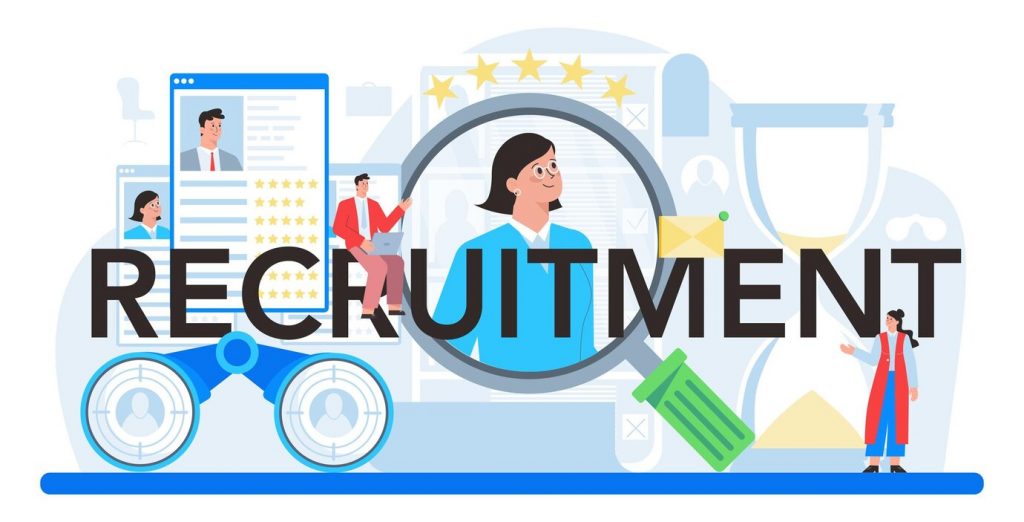As the hiring landscape evolves, organizations are seeking more efficient ways to conduct interviews while maintaining high standards of assessment. Interview as a Service (IaaS) is emerging as a key solution, enabling companies to leverage experienced interviewers from leading tech firms to conduct structured, AI-assisted evaluations. By outsourcing interviews, businesses can scale their hiring processes, reduce bias, and ensure high-quality candidate assessments.
However, despite its advantages, implementing IaaS comes with challenges. From security concerns to integration issues and user adoption resistance, organizations must navigate multiple hurdles to successfully integrate IaaS into their hiring workflows. Understanding these challenges and implementing effective solutions is crucial for maximizing the benefits of IaaS.
Also Read: How to Improve Diversity and Inclusion with AI Recruitment Tools?
Common Challenges in Implementing IaaS
Security Concerns
- Data Protection and Privacy Issues: One of the biggest concerns in adopting IaaS is the handling of sensitive candidate data. Video interviews, behavioral analytics, and AI-driven insights involve storing and processing large amounts of personal information. Without proper security measures, there is a risk of unauthorized access, data leaks, or misuse of confidential information.
- Compliance with Regulations: Organizations using IaaS must ensure they comply with data protection laws such as GDPR (General Data Protection Regulation) in Europe, CCPA (California Consumer Privacy Act), and industry-specific regulations. Non-compliance can lead to legal consequences, financial penalties, and reputational damage.
Integration with Existing Systems
- Compatibility with Current HR Tools: Most organizations already use Applicant Tracking Systems (ATS), HR management software, and video conferencing tools. Ensuring that IaaS integrates smoothly with these systems is a major challenge. If the platform lacks API compatibility or requires extensive customization, it can lead to inefficiencies and workflow disruptions.
- Technical Challenges in Integration: IaaS platforms often rely on AI-driven analytics, automated scheduling, and cloud-based storage. Organizations with legacy systems may struggle with technical compatibility and require IT support to implement smooth integrations without affecting existing hiring workflows.
User Adoption and Training
- Resistance to Change Among Staff: HR teams and hiring managers accustomed to traditional interviewing methods may resist adopting IaaS. Concerns about losing control over hiring decisions, adapting to AI-driven evaluations, or trusting external interviewers can slow down adoption.
- Need for Comprehensive Training Programs: Even with a well-integrated system, lack of training can hinder its effectiveness. Recruiters, hiring managers, and candidates need guidance on how to use the platform, interpret AI-generated insights, and navigate technical features. Without proper training, teams may not fully leverage IaaS capabilities, leading to suboptimal hiring decisions.
Risks Associated with IaaS
Security Risks
- Potential Data Breaches: As IaaS platforms handle large volumes of candidate video recordings, assessment reports, and AI-generated insights, they become attractive targets for cyberattacks. A security breach could expose sensitive candidate data, resulting in loss of trust and legal consequences.
- Mismanagement of Sensitive Information: If IaaS providers do not implement strong encryption and access controls, candidate information could be accessed by unauthorized personnel or misused. Ensuring strict data governance policies is essential for mitigating these risks.
Operational Risks
- Downtime and Service Interruptions: IaaS platforms rely on cloud-based infrastructure, which means downtime or technical failures can disrupt hiring processes. If an organization is heavily dependent on IaaS, any service interruption could delay hiring cycles and impact recruitment outcomes.
- Dependency on Third-Party Providers: Since IaaS is an external service, companies must trust third-party interviewers and platforms to maintain quality and reliability. If the provider fails to deliver, organizations could face inconsistent candidate evaluations or delayed hiring decisions.
Financial Risks
- Hidden Costs and Budget Overruns: While IaaS reduces the workload on internal teams, unexpected costs such as integration fees, data storage costs, or premium AI analytics features can increase expenses. Organizations need a clear understanding of pricing models to avoid budget overruns.
- Long-Term Financial Implications: Switching to IaaS may require long-term investments in training, integration, and ongoing subscription fees. Businesses must evaluate whether the cost savings from improved efficiency outweigh the long-term financial commitments.
Effective Solutions to Overcome Challenges
Enhancing Security Measures
- Implementing Robust Security Protocols: To protect candidate data, IaaS providers should use end-to-end encryption, multi-factor authentication (MFA), and strict access controls. Organizations should also vet providers for compliance with industry security standards.
- Regular Audits and Compliance Checks: Conducting regular security audits and risk assessments ensures that the IaaS provider follows best practices in data protection. Compliance with ISO 27001, SOC 2, and GDPR should be a priority when selecting an IaaS provider.
Streamlining Integration Processes
- Utilizing APIs for Seamless Integration: To minimize technical challenges, organizations should choose IaaS platforms that offer API support for easy integration with existing HR tools like ATS, video conferencing, and candidate evaluation software.
- Engaging IT Specialists for Technical Support: IT teams should be involved in the integration process to ensure smooth data flow, prevent system conflicts, and optimize platform performance. A dedicated technical support team from the IaaS provider can also help resolve issues quickly.
Fostering User Engagement and Training
- Developing User-Friendly Interfaces: A complex or unintuitive interface can slow down adoption. IaaS platforms should focus on simple, user-friendly dashboards, ensuring that HR teams and hiring managers can easily navigate the system.
- Providing Ongoing Training and Support: Training should not be a one-time event. Organizations should offer regular workshops, online tutorials, and support channels to help HR teams, hiring managers, and candidates adapt to the new system with ease.
Conclusion
Recap of the Importance of Addressing Challenges in IaaS Implementation
While IaaS presents a transformative solution for modern recruitment, organizations must be proactive in addressing security, integration, and adoption challenges. Failure to do so can lead to inefficiencies, compliance risks, and financial setbacks.
Emphasis on the Benefits of Overcoming These Challenges
By enhancing security, streamlining integrations, and fostering user engagement, companies can maximize the benefits of IaaS. A well-implemented IaaS system enables faster, data-driven hiring decisions, reduces bias, and optimizes the interview process—ultimately leading to better talent acquisition outcomes.
Organizations looking to stay ahead in today’s competitive job market must embrace Interview as a Service while proactively mitigating risks. With the right strategy, IaaS can become a powerful asset in building high-performing teams.
Also Read: Fostering Diversity Through AI-Powered Interview Intelligence
Frequently Asked Questions:
1. What are the main security concerns when implementing IaaS?
The biggest security concerns include data privacy, compliance with regulations like GDPR, and risks of cyber breaches. Companies must ensure robust encryption and access controls to protect candidate data.
2. How can businesses ensure a smooth integration of IaaS with existing HR systems?
Organizations should choose IaaS providers that offer API support and seamless compatibility with existing ATS and HR software. Engaging IT specialists during the integration process is also crucial.
3. What are the key benefits of using IaaS despite its challenges?
IaaS provides scalability, efficiency, and unbiased hiring decisions. It helps businesses reduce interviewer workload, improve candidate assessments, and optimize recruitment processes with data-driven insights.




